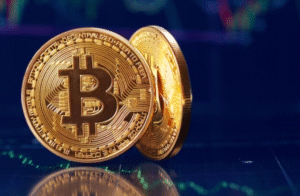$LMT $BA $BTC
#Russia #USPolicy #BidenAdministration #LongRangeMissiles #DefenseStocks #Geopolitics #UkraineConflict #MilitarySpending #StockMarket #InternationalRelations #CryptoMarket #Inflation
Russia has expressed strong opposition to the U.S. decision to supply long-range missiles to Ukraine, warning that this move will further escalate tensions between Washington and Moscow. In a statement, Russian officials criticized the move as ‘adding fuel to the fire’, expressing concern that it could deteriorate the security situation in Europe and extend the ongoing conflict. The decision by the Biden Administration represents a significant shift in U.S. military policy and has consequences not only for the geopolitical landscape but also for key industries, notably defense and energy. The plan to boost Ukraine’s defense capabilities is likely to lead to increased demand for military equipment, particularly for contractors that manufacture advanced missile systems, such as Lockheed Martin ($LMT) and Boeing ($BA).
This move comes at a critical time when the Biden Administration is preparing for a renewal of key mandates in U.S. sanctions and military support appropriations within two months. The change in policy signals that Washington is positioning itself more directly in the conflict, a development that could have consequences for the global financial markets, particularly in terms of defense stocks. If tensions continue to escalate, there could be a sharp divergence in the market, with heightened demand for military technology pushing defense sector valuations higher while sectors exposed to energy vulnerabilities, such as airlines and logistics, may face downward pressure due to surging oil prices. Moreover, the U.S. economy’s involvement in the conflict might add more spending pressure, further stoking inflation concerns.
Simultaneously, geopolitical uncertainty tends to act as a driver for assets viewed as safe havens, including cryptocurrencies like Bitcoin ($BTC), which have benefited from global instability in the past. A heightened military engagement from the United States could prompt a short-term spike in demand for decentralized digital currencies, as some investors seek to shield themselves from potential fiat currency volatility or the impact of sanctions on traditional currencies. However, long-term regulatory scrutiny might curb the gains, particularly as governments worldwide see the conflict as a call to tighten control over transactions that could facilitate money laundering or escape sanctions.
Investors remain cautious as the potential ramifications of U.S. involvement in supporting Ukraine intensify the risks of deeper sanctions on Russian natural resources, including oil and gas, the prices of which are likely to be affected short-term. While defense stocks may experience a bullish phase, broader market volatility could increase in sectors reliant on energy inputs, potentially keeping overall market indices under pressure. With these developments, market participants are advised to remain observant, especially of earnings reports in the defense sector, while adjusting portfolios in anticipation of price fluctuations in the energy and cryptocurrency markets.







Comments are closed.